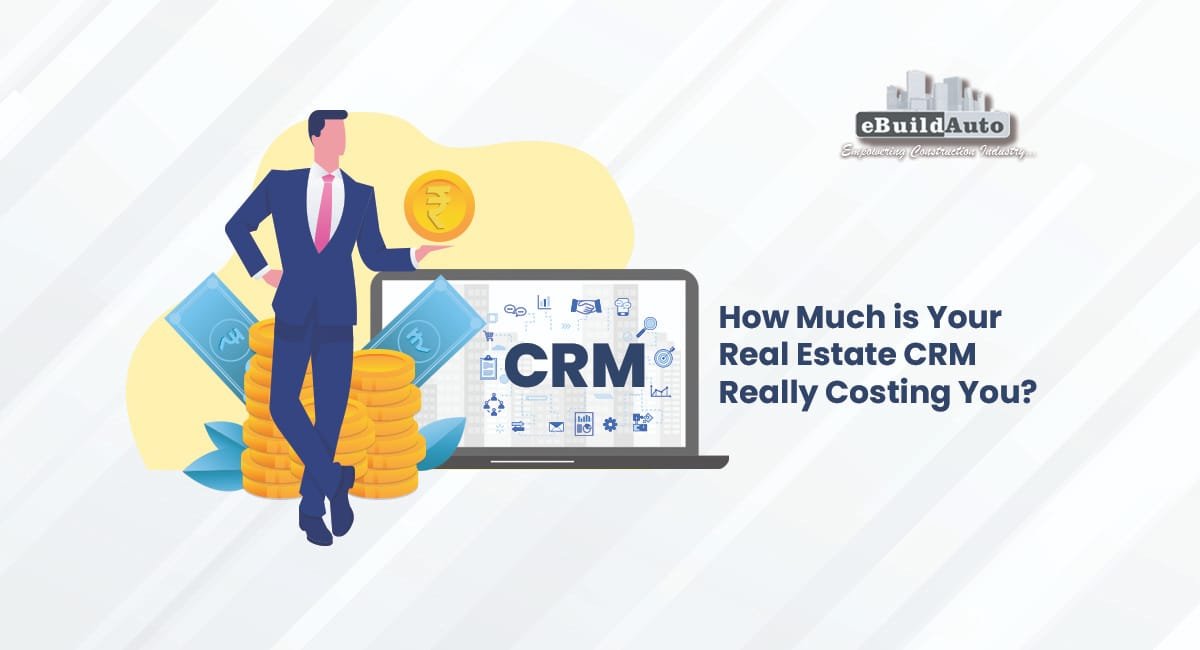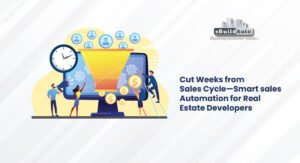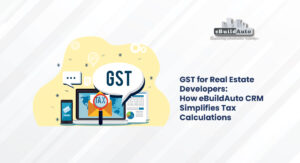Table of Contents
ToggleHow Much is Your Real Estate CRM Really Costing You?
If there’s one thing that 2020 has brought home to businesses it is the importance of customer relationship management (CRM). As cities shut down, and citizens shut themselves up in their homes, the digital world automatically grew in importance.
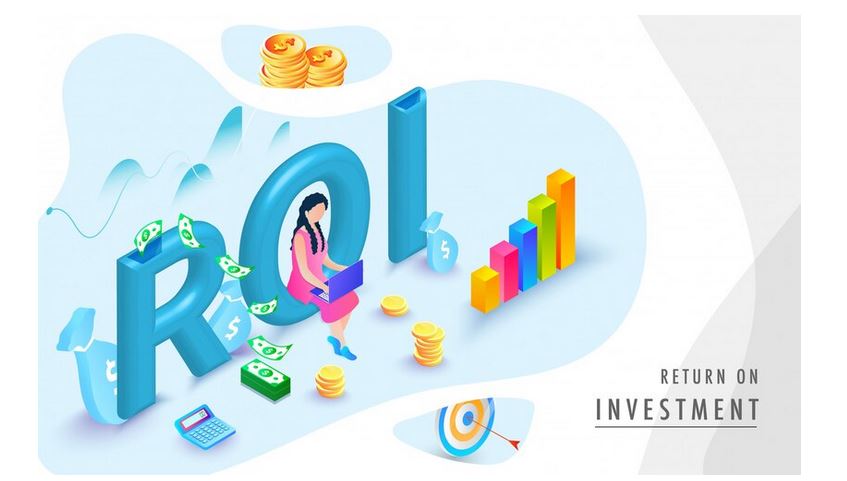
Those businesses that had already invested in digital transformation of their systems and operations were able to ride out the storm far better than those that hadn’t understood or appreciated the enormous impact that the digital world would have.
Many were left scrambling for solutions, and CRMs emerged as the key uniting factor for almost every type of industry and geography, but especially for sectors like construction in India, where old school practices still hold sway.
For real estate players, deciding on which CRM to purchase can be a daunting task. Choices that seem overwhelming popular one day, thanks to enthusiastic positive reviews, can seem disastrous the next day if stories of failed projects reach your ears. So how can one be confident that the money spent on a certain CRM will be recovered early—keep in mind that upgrades happen every year, adding to the cost of your investment.
Studies show that every dollar spent on your CRM returns as much as 8.7 dollars in Sales ROI*. But these numbers are predicated on a number of factors, such as usability, support, user-experience, security, et al. The only way to be sure is to focus on three disparate areas.
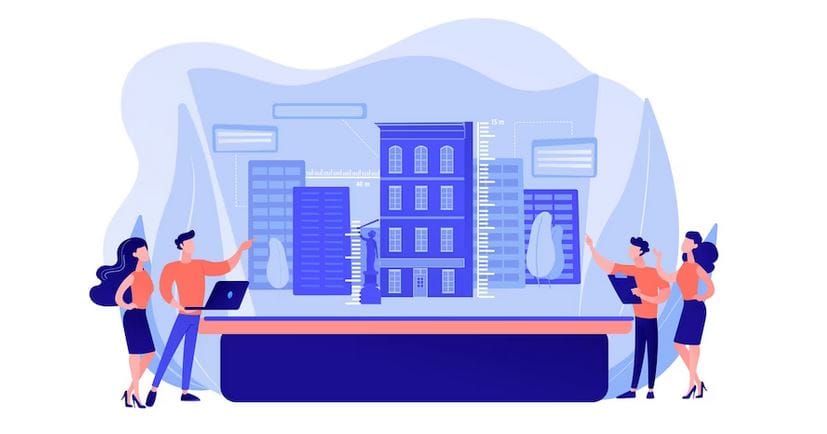
Like any other investment or purchase, one needs to calculate the cost of purchase and the true cost of owning the investment. Digital solutions are no different. But computing the cost of a CRM is not so straightforward. It involves calculating ROI three disparate areas:
1. Sales ROI—calculated in revenue earned as a result of the CRM
2. Productivity ROI—how well your people use and leverage the CRM
3. Actual TCO, I.e. Total Cost of Ownership.
Sales ROI
The two departments that should benefit the most from an effective Real Estate CRM are Marketing and Sales. And one of the most potent factors influencing profitability, especially when the product involves lakhs and crores of rupees—as typical urban property does—is time. Consider the typical scenario every real estate developer faces every day. Bookings!
Every booking means 30% of the cost of the unit purchased is recovered. So the sooner the developer is able to collect the money the faster he will make a profit.
A Real Estate CRM can help you do just that by generating multiple demand letters accurately in whatever quantity needed, in seconds. Delays in this process, or inaccuracies, can cost the developer lakhs. Consider a hypothetical case:
Hypothetically, if the developer has sold 30 properties worth 50 lakhs each, he needs to recover (450 lakhs) from the various buyers (50lakhs x 30 x 30%). This is in accordance with Rera stipulations. With such massive amounts at stake, delay of even a day means a cost of 12,000+ a day in cost of capital. As the days pass, the amounts quickly pile up, easily reaching a lakh is as little as a week.
Add to this the cost of paying lawyers & chartered accountants (CA) for every agreement generated, as well as the cost of revised agreements—in the event of changes in the booking, due to errors, or buyer negotiations.
This is just one capability a good Real Estate CRM must offer. Read the article entitled 10 things every CRM must do for a clearer understanding of the capabilities a good Real Estate CRM must possess.
Productivity ROI
Consider another hypothetical situation. You buy a performance car, say a Ferrari, but choose to drive it in the slow lane at 30 miles per hour. How would you rate the productivity of the car?
Usability
Similarly, if your CRM is hard for your people to use or understand, they will resist attempts to mandate changes. So, your chosen CRM must be user friendly. It must also be quick to install and implement. There are CRMs that can take months, years even to implement. In the duration, the business itself is evolving, forcing more customisations. It’s a potentially disastrous spiral.
API Integration
Another critical factor is API Integration. The ability of your CRM to easily and quickly integrate third party applications, such as email, social media apps or popular software like MS Word, makes it easier to use, and will also help your people get involved in using it quickly. Integration of popular, familiar apps, like email and MS Word, also boost your toppling numbers, as you will be able to quickly create and deploy campaigns, thus, improving your Sales ROI.

Total Cost of Ownership
Cost of a CRM can depend on a number of factors over and above pricing, such as subscription models, cost of training & support, cost of updates, etc. Like every other web-based application, Real Estate CRMs too go through periodic updates and upgrades.
These are necessary for security reasons and to leverage next-gen technologies. But they come at a cost, which will affect your TCO over the long term. Other factors that impact your TCO are: Time (spent in change management, training your people), direct cost of training, and support, managed services (in the event that you need added support in the short to medium term)
eBuildAuto—everything a Real Estate CRM must be.
The secret to a happy customer is a connected customer, and that means a CRM that can engage your customer with your brand, improving the prospects of transforming them from customer to a staunch brand advocate and an excellent source of referrals.
Post Sales Capabilities
eBuildAuto, from RichTech IT offers a discrete Post-sales Module that can help you build a strong customer base through effective communication and customer management across the value chain.
Fast and error-free with high usability
eBuildAuto helps simplify the booking process with an easy to use interface, minimal input fields and instant application generation. It just needs three input fields to be filled in to get started. Using this information it can populates fields in multiple documents and generating documents—from booking application to allotment—almost instantly.
The Post-sales module keeps track of individual customer requirements and generates booking confirmations with no ambiguity.
Timely and Accurate Demand Letters and Agreements
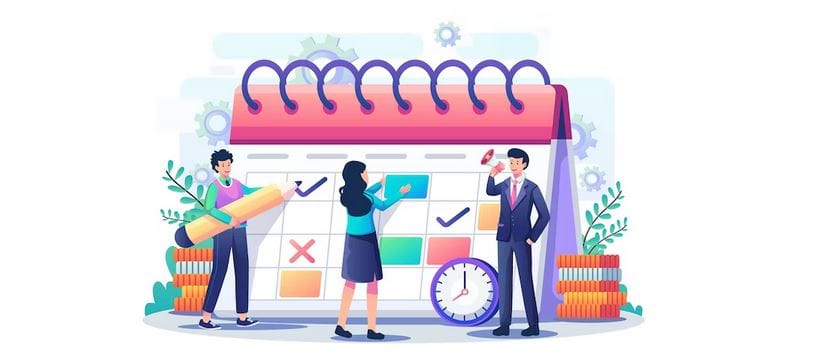
eBuildAuto realtors CRM software generates up to 50 demand letters in a matter of 30 seconds, and Agreements in just 40 seconds! Thanks to the API integrations, it can despatch automatic notifications to customers for the demand amount via popular communication apps like SMS, WhatsApp and email.
eBuildAuto rounds up its menu of features with strong analytics and reporting capabilities for insights into various factors affecting performance. This intelligence can help enable more accurate forecasts and prompter decisions.


